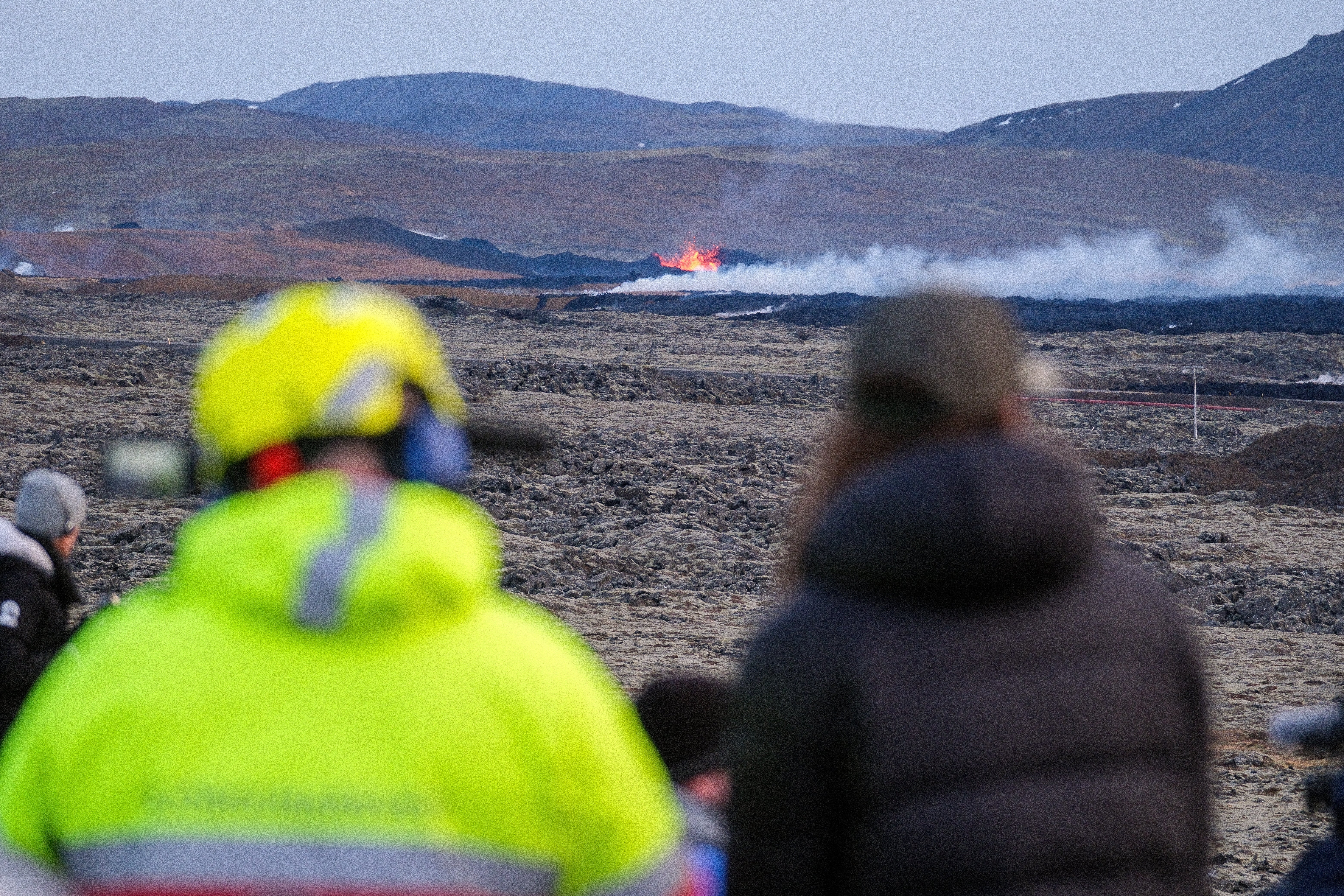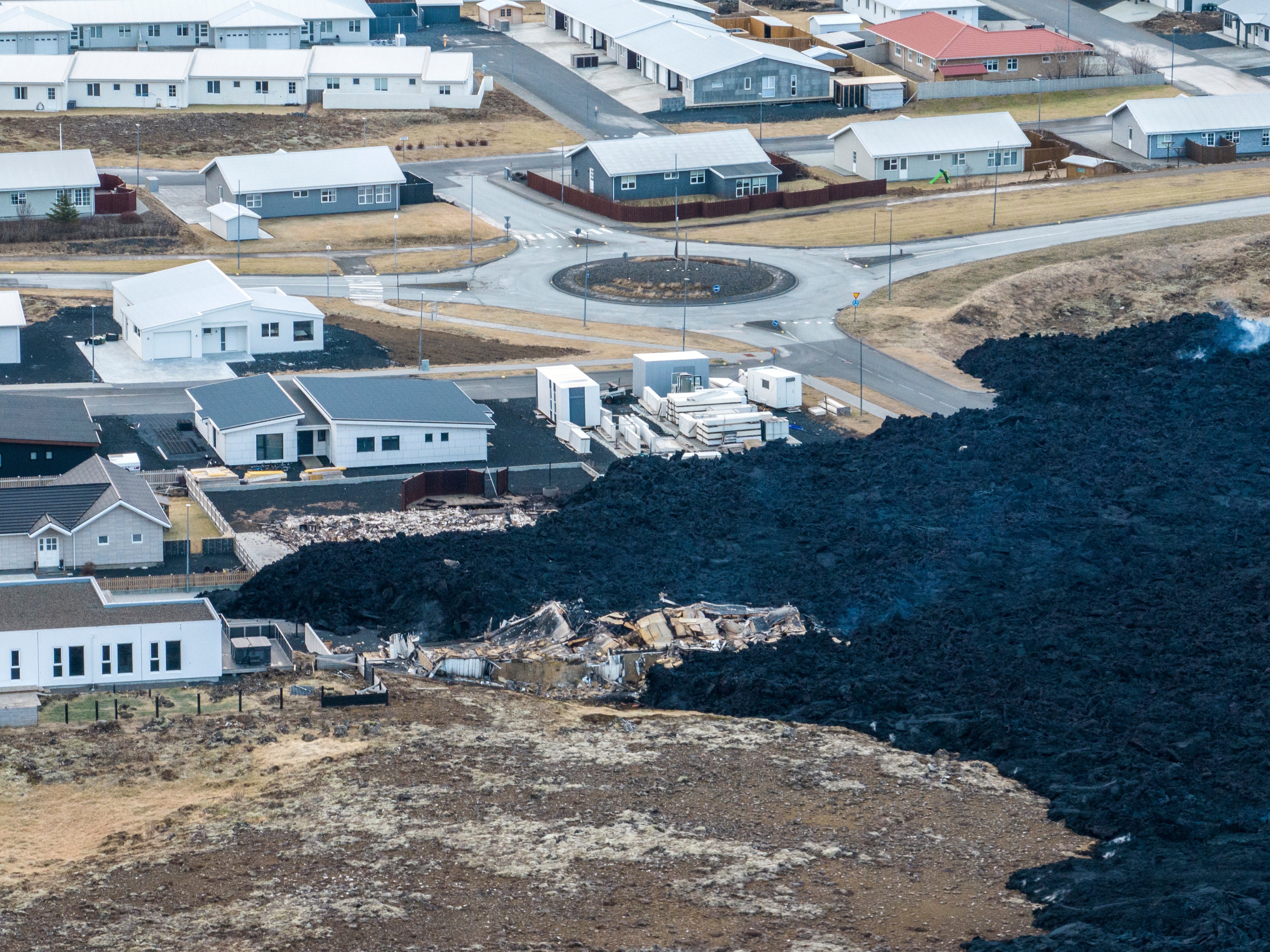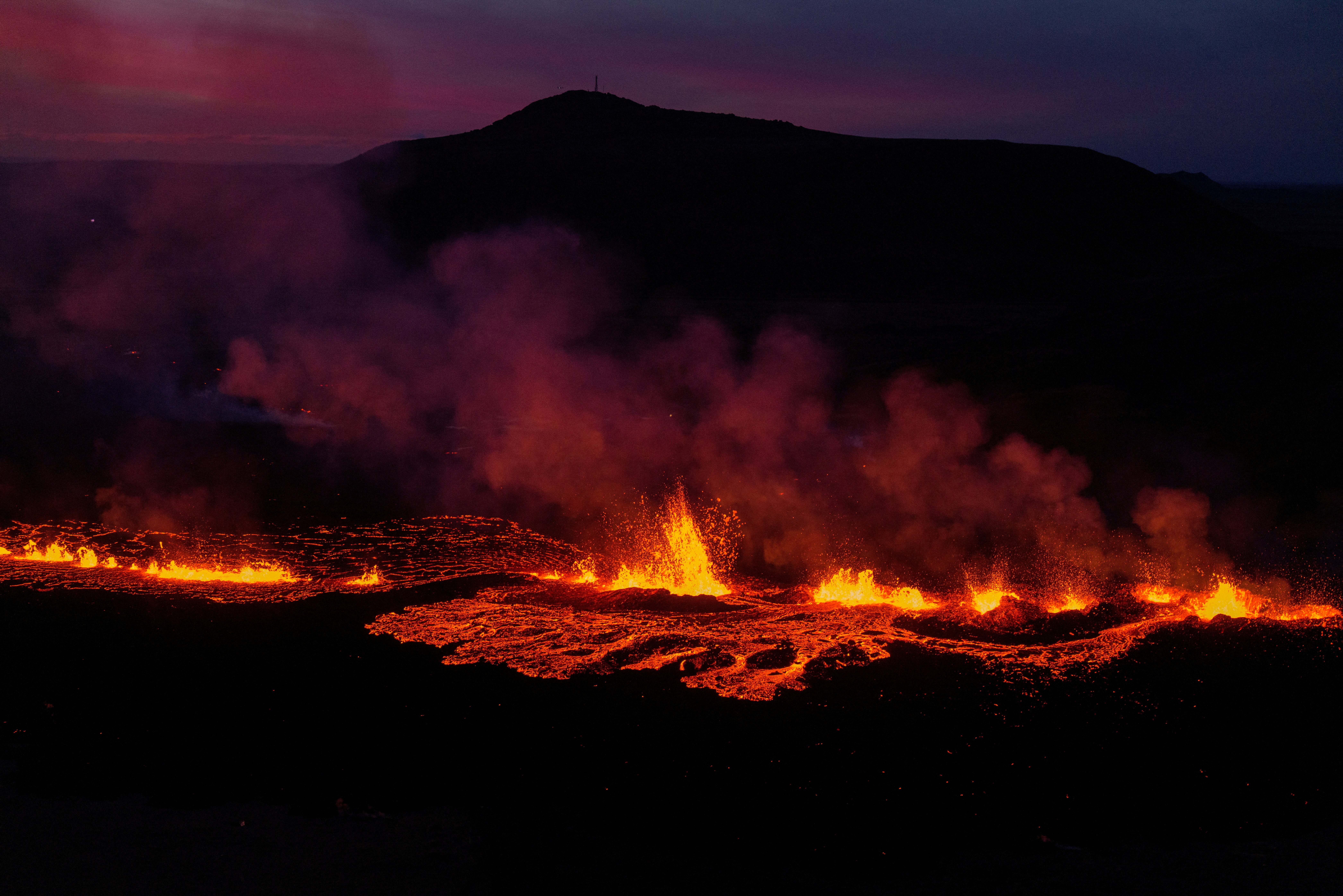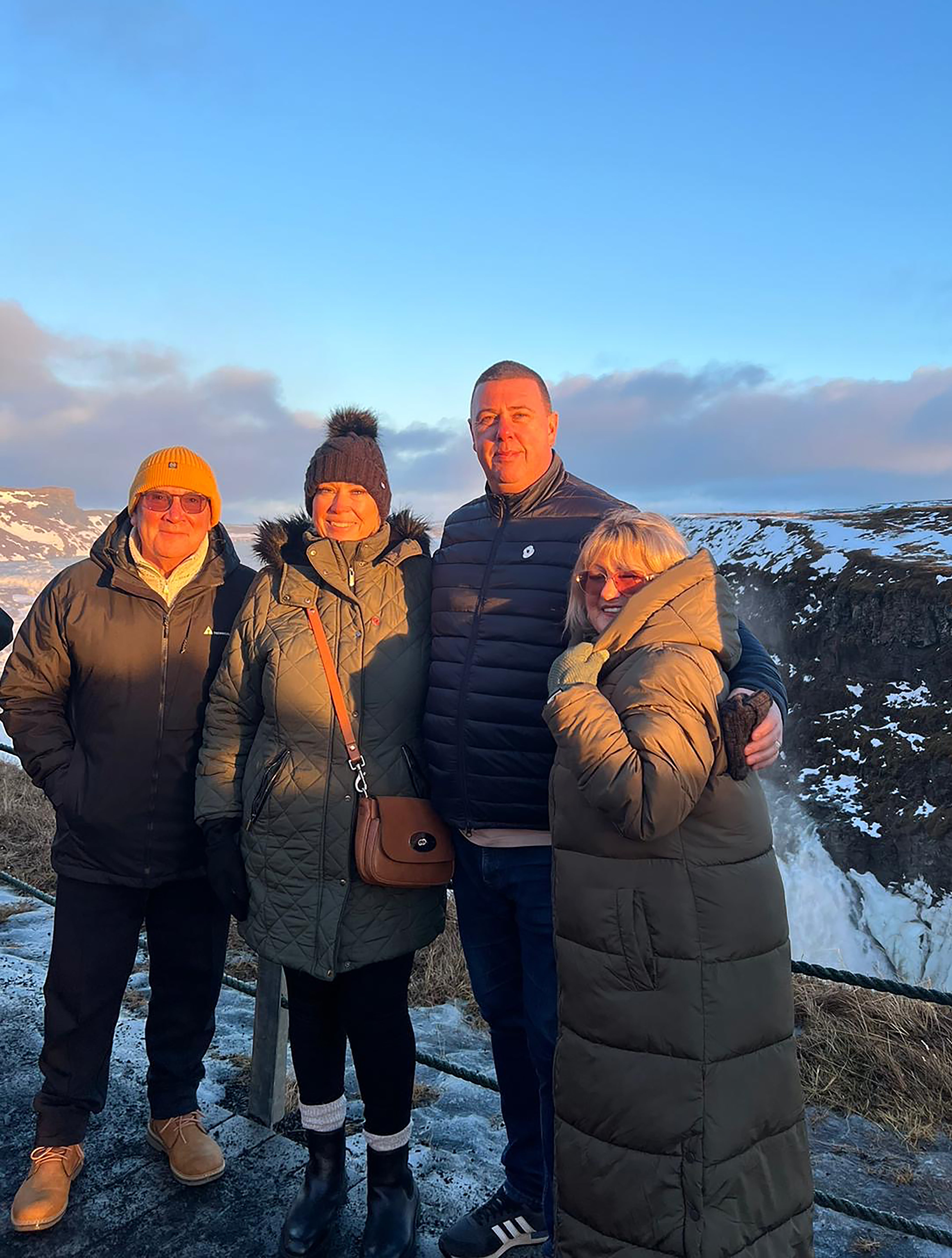Residents of Icelandic town fear they won’t be able to return to their homes after second volcanic eruption
Iceland’s president calls for residents to ‘stand together’ as country battles ’tremendous forces of nature’
Your support helps us to tell the story
From reproductive rights to climate change to Big Tech, The Independent is on the ground when the story is developing. Whether it's investigating the financials of Elon Musk's pro-Trump PAC or producing our latest documentary, 'The A Word', which shines a light on the American women fighting for reproductive rights, we know how important it is to parse out the facts from the messaging.
At such a critical moment in US history, we need reporters on the ground. Your donation allows us to keep sending journalists to speak to both sides of the story.
The Independent is trusted by Americans across the entire political spectrum. And unlike many other quality news outlets, we choose not to lock Americans out of our reporting and analysis with paywalls. We believe quality journalism should be available to everyone, paid for by those who can afford it.
Your support makes all the difference.Residents of the Icelandic town of Grindavík fear they may not be able to return to their homes after a second volcanic eruption on the island in a month – destroying several homes and damaging water and electricituy supplies
Residents of Grindavik managed to escape just hours before a flow of orange lava burst from a crack in the ground just 200 metres away and entered the town, consuming three homes. The town, with a population of 4,000, was evacuated ahead of an eruption on 18 December but dozens of residents had returned before facing leaving their homes for a second time.
Many residents watched the damage unfold on live streams from other towns. "This is serious, it's basically as bad as it can possibly get. Although it might get even worse, who knows?" evacuated resident Jon Gauti Dagbjartsson said.
"I actually live in the house that I was born in and it's a tough thought to think that this town might be over, and I would have to start all over somewhere else. But if that's the case, then that's exactly what we'll do."
Thankfully, lava from a larger fissure north of the town was stopped by defences built up by the country’s authorities. On Monday, scientists said that the eruption appeared to be dying down, but it was too soon to declare the danger over.
Yet there’s still concern over the damage and any possible further eruptions. The nearby Blue Lagoon geothermal spa — one of Iceland's biggest tourist attractions — also shut and said that it would remain closed until at least Tuesday.

Icelandic Police have also called off a search for a missing workman who reportedly fell through a crack in Grindavik.
President Gudni Th. Johannesson said in a televised address that “a daunting period of upheaval has begun on the Reykjanes peninsula”.
He said: “We don’t yet know how this eruption will unfold, but we must still take those actions that are within our power. We will carry on with our responsibilities and we will continue to stand together.

“We continue to hope for as good an outcome as possible, in the face of these tremendous forces of nature.”
The second eruption near the town of Grindavik, which took place on Sunday morning, presented the “worst-case scenario” according to the country’s director of civil defence, Vidir Reynisson.
He said that while barriers prevented the main stream of lava from the larger fissure, the second smaller crack led to the town being impacted.
Hlynur Sæberg Helgason told local outlet Iceland Monitor: “You just look at your house in the background and you’re obviously not feeling well.”
He added: “You just still have hope that this will work out and the lave will stop an that we can return to our home one day.”

As well as destroying three homes, the lava has broken hot water pipes meaning the town is now without heat. Electricity was also cut off from half of the town.
And despite the flowing of lava decreasing, concern has also turned to up to 240 sheep locked in shelters in the town. The Icelandic Food and Veterinary Authority has called for owners to be given permission to bring their animals to safety.
The situation in the country has been worsened by the disappearance of father-of-four Lúðvík Pétursson, 50, who was working to fill in crevasses formed by earthquakes and volcanic activity in the fishing town of Grindavik. A manhunt involving hundreds of rescue workers has since been called off.

The latest volcano eruption was spotted by holidaymakers returning home via Keflavik Airport to the UK.
Lorraine Crawford, 67, and her 70-year-old husband John, from Essex, along with Mr Crawford’s cousin, Michael Daltrey, and his wife, Faye were in a taxi when they saw the erupting volcano in the distance and initially thought it was a fire.
“It’s alarming in a way – it’s quite exciting to see something like that but then you realise that this could do quite a lot of damage,” Mrs Crawford, who runs a travel agency with her husband and their daughter, told the PA news agency.
Join our commenting forum
Join thought-provoking conversations, follow other Independent readers and see their replies
Comments